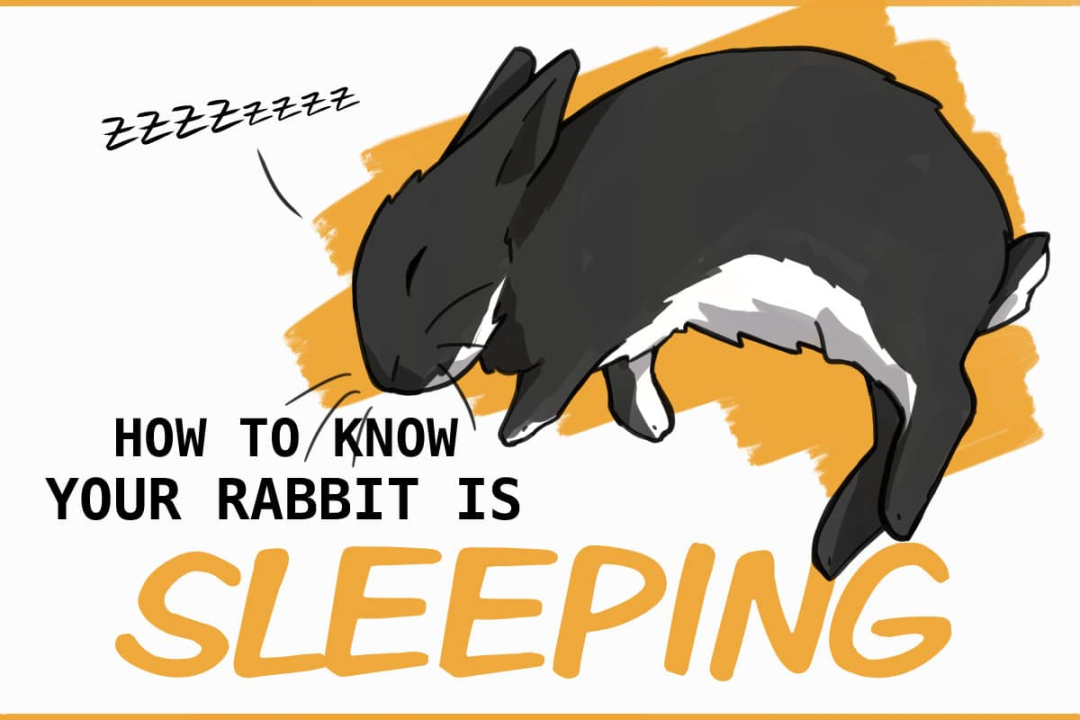How Long Does a Rabbit Sleep?
Rabbits are known for their adorable appearance and energetic behavior. However, they also need plenty of rest to maintain their overall well-being. In this article, we will explore the sleep patterns of rabbits and answer some frequently asked questions about their sleep habits.

1. Sleep Duration
Rabbits are crepuscular animals, which means they are most active during dawn and dusk. Unlike humans, rabbits do not have a single long sleep period during the night. Instead, they have several short sleep periods throughout the day and night. On average, a rabbit sleeps for about 8 hours a day.
2. Sleep Environment
Rabbits need a comfortable and safe sleep environment to ensure they get sufficient rest. They are naturally prey animals, so they need to feel secure while sleeping. Providing them with a quiet and peaceful space can help them relax and sleep better.
Additionally, rabbits are highly sensitive to temperature variations. Extreme heat or cold can disrupt their sleep patterns. It’s important to keep their sleeping area at a moderate temperature, preferably between 60 and 70 degrees Fahrenheit.
3. Sleep Positions
Understanding a rabbit’s sleep position can give you insights into their overall comfort and well-being. Here are some common sleep positions that rabbits adopt:
- Stretched Out: In this position, a rabbit lies flat on its side with its limbs extended. This position indicates that the rabbit feels safe and secure in its environment.
- Curled Up: When a rabbit curls up and tucks its hind legs under its body, it is a sign that the rabbit is trying to conserve body heat. This position is often seen in colder environments.
- Sitting Up: A rabbit sitting up with its legs folded beneath its body is a common resting position. It allows the rabbit to remain alert while still getting some rest.
4. Sleep Patterns
Rabbits have unique sleep patterns that differ slightly from other animals. They often experience short periods of deep sleep, known as rapid eye movement (REM) sleep. During REM sleep, their eyes twitch, and their nose may twitch as well.
Rabbits may also engage in a behavior known as binky while sleeping. A binky is a joyful leap or twist in the air, and it is believed to be a sign of contentment and happiness. While this behavior doesn’t occur during sleep, it is closely associated with rabbit relaxation and playfulness.
Frequently Asked Questions (FAQs)
1. How can I create a comfortable sleep environment for my rabbit?
Providing a comfortable sleep environment for your rabbit involves ensuring a quiet and peaceful space. Use materials such as soft blankets or straw for bedding. Also, ensure the temperature is moderate and the area is well-ventilated.
2. Is it normal for rabbits to sleep with their eyes open?
Yes, it is normal for rabbits to sleep with their eyes open. Due to their prey animal instincts, rabbits need to stay alert even while resting. Their eyes have a 360-degree field of vision, which allows them to detect any potential threats while sleeping.
3. How can I tell if my rabbit is getting enough sleep?
Signs that your rabbit is getting enough sleep include a relaxed body posture, regular eating and drinking habits, and an overall healthy appearance. If your rabbit seems lethargic or exhibits signs of sleep deprivation, it’s best to consult a veterinarian.
4. Can rabbits dream?
While it’s difficult to determine if rabbits dream, they do experience rapid eye movement (REM) sleep, which is associated with dreaming in other animals. During REM sleep, rabbits may twitch their eyes and nose, suggesting they may be dreaming.
In conclusion, rabbits require an average of 8 hours of sleep per day, but their sleep is fragmented into short periods throughout the day and night. Creating a comfortable sleep environment and understanding their sleep positions and patterns is essential for their well-being. By providing the right conditions for sleep, you can ensure that your rabbit remains happy, healthy, and energized.
Related Articles…
Copyright Notice:
All images on this website are obtained from the internet and remain copyrighted to their original owners. If you hold copyright to any image and want it taken down, please reach us.